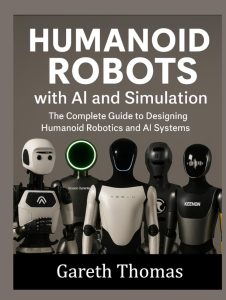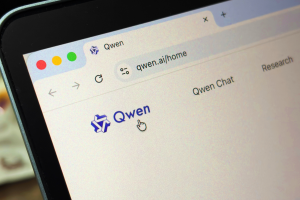The AI Revolution Infinite Memory and the Future of Technology

Hold onto your hats, tech enthusiasts! Microsoft AI, in tandem with OpenAI, is gearing up for a major leap in artificial intelligence by 2025. The buzz is all about infinite memory, a potential game-changer in the AI world.
Infinite memory would mean your AI won’t just remember its last conversation with you—it’ll recall all your interactions. It’s like having a digital best friend who never forgets. This development has the potential to revolutionize how we engage with technology on a daily basis.
Unleashing the Power of Infinite Memory
Infinite memory isn’t just a fancy term; it’s a revolutionary concept. Imagine an AI that remembers every chat, every question, and every piece of information it digs up for you. This is the tech that could change everything, from your daily interactions to entire industries, by giving AI the ability to hold onto all past experiences.
This concept was further explored by Google Research in their paper about Infinite context windows. Current models struggle with long texts, but a method called infinite attention is changing that. It acts like a smart notepad to summarize and prioritize essential information. This means AI can recall necessary details without being overloaded.
Breaking Down the Barriers of Infinite Context Windows
Infinite context windows are pushing AI to new heights, enabling it to handle more information at once. Imagine an AI that can hold the context of every conversation it has had with you. It’s mind-blowing and could mean deeper, more meaningful interactions with technology.
Google’s innovative approach to infinite context windows, highlighted in their publication, demonstrates how AI models can efficiently process long texts. Instead of getting bogged down with unnecessary details, the new method allows AI to focus on what’s really important, keeping the memory lean and effective.
The Practical Impacts
In the business world, infinite memory could transform sectors by enabling AI to keep track of vast amounts of data, from coding documentation to customer feedback. The potential applications are enormous and could streamline processes and improve outcomes across industries.
Pioneers of Memory Innovation
As Eric Schmidt points out, longer context windows will allow AIs to engage more sophisticatedly with users. Imagine discussing an elaborate recipe or complex problem-solving scenario with AI—this is the future on the horizon.
The Edge of Recursive Self-Improvement
While some remain skeptical, the rapid pace of AI advancements can’t be ignored. With Microsoft AI at the helm, this transformative journey is one to watch carefully.
Challenges with AI Agents
AI agents are still a work in progress. These systems aim to act autonomously over time, performing actions like booking tasks or offering suggestions effectively, which remain challenging.
Current AI mechanisms aren’t entirely reliable for long-term actions. Although examples on social media impress, they require substantial improvements before becoming everyday tools.
Forward-Looking AI Benchmarks
Presently, models like cla3.5 struggle with consistent accuracy. While they perform well initially, the performance declines with repeated tasks. For these models to become viable, they need to achieve much higher reliability, reaching error rates closer to 10%.
There’s hope for improvement. With better training and newer models, achieving these standards isn’t out of reach.
Reliability and Future Prospects
Reliability is essential for deploying AI in real-world applications. Experts, like Dario Amodei, expect more seamless AI functioning by 2026. Patience may be needed, but progress is evident.
AI agents will take numerous actions to complete tasks, requiring low error rates in each step. Improving this is crucial for AI to become a helpful partner in our lives.
The Journey Ahead
By 2025, infinite memory could be a game-changer. The ideas being brewed are groundbreaking, and the coming year might witness the dawn of a new era in technology.
While memory expansion seems groundbreaking, it also poses ethical questions about privacy and data usage. Balancing innovation with privacy will be key.
Infinite Memory: A Technological Marvel
The prospect of having AI with infinite memory excites many. As we move closer to this reality, the implications for everyday technology use are immense. We’re not just observing technological evolution—we’re a part of it.
As we stand on the brink of this exciting development, one thing is certain. The future where AI systems enhance our lives in unimaginable ways is not so far off.
Infinite memory could soon revolutionize AI. The changes we’re witnessing might reshape everyday interactions. Stay tuned, as this is just the beginning of technology’s next big leap.








